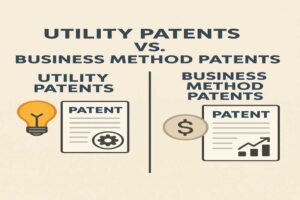Overview
Die Securities and Exchange Commission (SEC) spielt eine entscheidende Rolle im IPO-Prozess. Sie ist die primäre Regulierungsbehörde der Wertpapiermärkte in den Vereinigten Staaten und für die Durchsetzung der Bundeswertpapiergesetze verantwortlich.
Im Zusammenhang mit einem Börsengang ist die SEC für die Prüfung und Genehmigung der Registrierungserklärung verantwortlich, die das Unternehmen bei der Agentur eingereicht hat. Die Registrierungserklärung enthält detaillierte Informationen über das Unternehmen, seine Geschäfte, seine Finanzen und das geplante Angebot von Wertpapieren. Die SEC überprüft die Registrierungserklärung, um sicherzustellen, dass sie die Offenlegungsanforderungen der Bundeswertpapiergesetze erfüllt und dass das Unternehmen keine wesentlichen falschen Angaben oder Auslassungen macht.
Die SEC prüft auch den Prospekt, ein Dokument, das potenziellen Anlegern Informationen über das Unternehmen und das Angebot liefert. Der Prospekt muss den SEC-Anforderungen entsprechen und alle wesentlichen Informationen über das Unternehmen und das Angebot genau offenlegen.
Neben der Überprüfung der Registrierungserklärung und des Prospekts überwacht die SEC auch die Aktivitäten der Konsortialbanken und anderer Marktteilnehmer, um sicherzustellen, dass sie die Wertpapiergesetze des Bundes einhalten. Die SEC kann Durchsetzungsmaßnahmen gegen Parteien ergreifen, die gegen diese Gesetze verstoßen.
Insgesamt spielt die SEC eine entscheidende Rolle, um sicherzustellen, dass der IPO-Prozess fair und transparent durchgeführt wird und dass Investoren Zugang zu genauen und vollständigen Informationen über das Unternehmen und das Angebot haben.
The Securities and Exchange Commission (SEC), a federal regulatory body established in 1934, plays a crucial role in maintaining the fairness and integrity of the U.S. securities markets.
The primary function of the SEC is to ensure that all participants in these markets adhere to the federal securities laws. It also aims to protect investors, maintain orderly markets, and promote capital formation. One critical juncture at which the SEC’s role becomes particularly pivotal is during the Initial Public Offering (IPO) process of a company. An IPO marks a significant milestone in a company’s growth journey, offering an opportunity for it to raise capital from public investors. This article aims to discuss and explore the role of the SEC during the IPO process.
Regulatory Framework and IPO Registration Process
The process of going public is governed by the Securities Act of 1933, often referred to as the “truth in securities” law. This Act has two basic objectives: to require that investors receive financial and other significant information concerning securities being offered for public sale, and to prevent misrepresentation, deceit, and other fraud in the sale of securities. In compliance with these objectives, the Act mandates that companies disclose the necessary financial information through the registration of securities.
The SEC does not judge the quality of the securities being offered or suggest their worthiness as an investment. Its primary role is to enforce transparent disclosure of material information that allows investors to make informed decisions. The initial registration form that a company files with the SEC, the Form S-1, is a comprehensive document that includes details about the company’s business model, financial health, management, and risks involved. The SEC’s Division of Corporation Finance reviews the submitted documents for compliance with disclosure requirements. It does not, however, assess the business’s investment-worthiness.
The Due Diligence and Comment Process
Once the company files its registration statement, the SEC begins a process known as “due diligence.” This period allows the SEC to ensure that all the information disclosed in the registration statement is not only accurate but also complete. It also gives the SEC the opportunity to raise any concerns or questions they may have about the content provided. The SEC issues what are known as “comment letters” to the issuer, which are correspondence seeking clarification or additional information on the material provided in the registration statement.
These comment letters play an essential role in the IPO process. They are a manifestation of the SEC’s role as the investor’s advocate, ensuring that the information disclosed by the company is understandable, complete, and does not contain any misleading statements. The company responds to these comment letters, and this dialogue continues until the SEC is satisfied that the registration statement complies with the requirements of the Securities Act.
The Effectiveness of the Registration Statement
Once the SEC is satisfied with the responses to its comments and all the regulatory requirements are met, it declares the registration statement “effective.” The declaration of effectiveness marks the culmination of the SEC’s review process and greenlights the company to commence with the IPO. However, it’s important to note that the SEC’s declaration of effectiveness does not imply endorsement or approval of the quality of the securities being offered. It simply indicates that the company has met the SEC’s disclosure requirements. The onus is on the investor to analyze the disclosed information and decide whether the investment is sound.
Continuous Oversight and Reporting Requirements
The SEC’s role does not end with the completion of the IPO process. Once a company goes public, it is subject to continuous reporting requirements under the Securities Exchange Act of 1934. Public companies are required to file annual reports (10-K), quarterly reports (10-Q), and current reports (8-K) with the SEC. These reports ensure continuous disclosure of material information, enabling investors to make well-informed decisions. The SEC’s enforcement division diligently monitors these filings for potential violations of securities laws and maintains fair and orderly functioning of the securities markets.
SEC’s Role in Investor Protection
The SEC plays an indispensable role in investor protection by emphasizing complete and transparent disclosures. The aim is to empower investors to make informed decisions. It’s also tasked with enforcing securities laws and protecting investors from fraudulent schemes. For instance, the SEC can bring civil enforcement actions against individuals or companies alleged to have committed accounting fraud, provided false information, or engaged in insider trading or other violations of the securities law. The enforcement actions can lead to substantial penalties, thereby deterring violations and protecting the integrity of the U.S. securities markets.
SEC and Corporate Governance
The SEC’s regulatory function also extends to overseeing corporate governance. By enforcing the Sarbanes-Oxley Act of 2002, the SEC ensures that public companies adhere to enhanced standards for their boards, management, and public accounting firms. This results in greater accountability and transparency in corporate governance. As part of this mandate, the SEC reviews proxy statements to ensure that companies disclose important material information to shareholders about the issues that will be discussed and voted on at annual shareholder meetings.
The JOBS Act and the IPO On-Ramp
A significant recent development was the passage of the Jumpstart Our Business Startups (JOBS) Act in 2012, which introduced measures to facilitate smaller companies’ access to capital, including an “IPO on-ramp” that provided emerging growth companies (EGCs) with a phase-in period to comply with certain disclosure and accounting requirements. The SEC was tasked with implementing these provisions, thus reflecting its ever-evolving role in balancing the need for robust investor protection with promoting capital formation and market growth.
Abschluss
The SEC’s role during the IPO process is multifaceted and indispensable to the integrity of the financial markets. Through its meticulous review and comment process, the SEC ensures that potential investors have access to all material facts. The due diligence process enables a dialogue between the SEC and the issuer to produce a comprehensive, transparent, and fair disclosure of information. The SEC’s continuous oversight of public companies upholds the integrity and reliability of the public markets.
However, it is crucial to note that the SEC’s role is not to assess the investment’s quality or profitability. While the SEC strives to ensure all significant business and financial information is disclosed, the ultimate investment decision rests with the investor. As such, the SEC’s work is to facilitate a fair and transparent marketplace, making it possible for individual and institutional investors alike to have confidence in the public markets, thereby contributing to a prosperous economy.
As the marketplace evolves with the advent of new technologies and financial products, the role of the SEC continues to evolve too. The ultimate goal remains the same: protecting investors, maintaining fair, orderly, and efficient markets, and facilitating capital formation. It is an intricate balancing act between fostering innovation and capital formation on one hand and ensuring investor protection and market integrity on the other. The SEC’s critical role in the IPO process exemplifies this balance and underlines its importance in the U.S. financial ecosystem.







